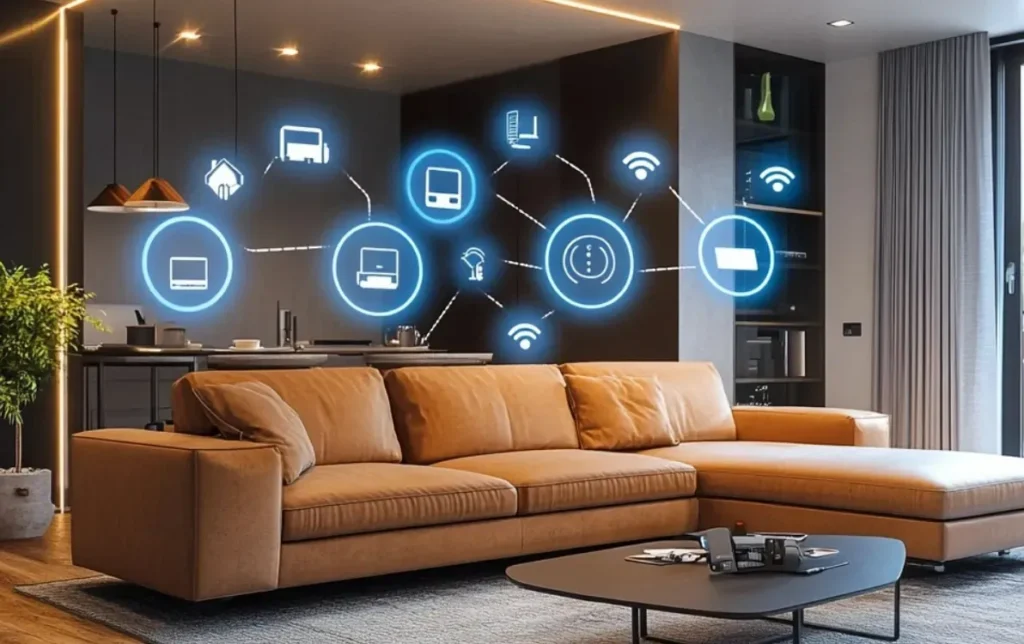
Smart home energy audit tools: Optimizing Efficiency and Savings
In today’s world, where technology continues to evolve at a rapid pace, smart home energy audit tools have become a crucial component for homeowners looking to optimize their energy usage. These tools not only help in identifying areas where energy is being wasted but also suggest ways to enhance efficiency, leading to significant cost savings. Whether you’re a tech enthusiast or simply someone who wants to reduce their carbon footprint, understanding how these tools work can be immensely beneficial.

Understanding Smart Home Energy Audit Tools
The primary function of smart home energy audit tools is to provide homeowners with insights into their energy consumption patterns. By analyzing data from various smart devices and appliances, these tools offer a comprehensive overview of where and how energy is being used. This information is invaluable for making informed decisions about energy management and implementing strategies that can lead to better efficiency.
Benefits of Using Smart Home Energy Audit Tools
- Cost Savings: One of the most significant advantages of these tools is the potential for cost savings. By identifying areas of energy waste, homeowners can take steps to reduce their utility bills.
- Environmental Impact: Reducing energy consumption not only saves money but also lessens your household’s environmental impact, contributing to a more sustainable future.
- Convenience: With the integration of smart technology, managing and optimizing energy use becomes more straightforward and convenient.
How Do Smart Home Energy Audit Tools Work?
These tools typically connect to your home’s smart devices and appliances, collecting data on energy usage. They analyze this data to provide insights and recommendations. Some tools are standalone devices, while others are integrated into existing smart home ecosystems.
Components of a Smart Home Energy Audit
- Energy Monitors: Devices that track the energy consumption of specific appliances or circuits.
- Smart Plugs: These plugs can measure the energy use of devices and allow you to control them remotely.
- Central Hubs: Many smart home systems use a central hub to collect and analyze data from various devices.
Popular Smart Home Energy Audit Tools
There are several smart home energy audit tools available on the market, each with its unique features. Some popular options include:
Choosing the Right Tools for Your Home
When selecting smart home energy audit tools, consider factors such as compatibility with your existing devices, ease of use, and the specific features you need. It’s also essential to assess the cost of the tools and weigh them against the potential savings on your utility bills.
Implementing Smart Home Energy Audits
Once you have the necessary tools, conducting a smart home energy audit involves several steps:
- Installation: Set up energy monitors and smart plugs on key appliances.
- Data Collection: Allow the tools to collect data over a period to get an accurate picture of energy use.
- Analysis: Use the insights provided by the tools to identify areas of improvement.
- Implementation: Make the necessary changes to reduce energy waste and improve efficiency.
Maximizing Results from Your Energy Audit
To get the most out of your smart home energy audit, consider taking the following steps:
- Regular Monitoring: Continuously monitor your energy usage and make adjustments as needed.
- Upgrade Devices: Replace outdated appliances with energy-efficient models.
- Behavioral Changes: Encourage family members to adopt energy-saving habits.
Integrating Smart Home Solutions
Integrating your energy audit tools with other smart home solutions can enhance their effectiveness. Consider linking your energy audit tools with a central hub or smart speaker for better control and automation. For more details on integrating smart appliances, visit Smart Appliances Integration.
Challenges and Considerations
While smart home energy audit tools offer numerous benefits, there are some challenges to consider:
- Initial Investment: The cost of purchasing and installing these tools can be significant.
- Data Privacy: Ensure the tools you choose have robust security features to protect your data.
Future of Smart Home Energy Audits
As technology advances, the capabilities of smart home energy audit tools will continue to expand. We can expect more integration with other smart home devices and enhanced AI-driven insights that provide even more accurate recommendations for energy use optimization.
For those interested in exploring further, the advantages of smart home technology offer a glimpse into the future of energy efficiency and home automation.
Conclusion
In conclusion, smart home energy audit tools are a valuable resource for homeowners looking to optimize their energy use and reduce costs. By understanding how these tools work and implementing the insights they provide, you can achieve significant savings and contribute to a more sustainable future.

FAQs
What are smart home energy audit tools?
These tools help homeowners analyze and optimize their energy usage by collecting data from smart devices and offering insights for improvement.
How can I benefit from using these tools?
By identifying areas of energy waste, you can reduce your utility bills and lessen your environmental impact.
Are there any challenges with using smart home energy audit tools?
Some challenges include the initial investment cost and ensuring data privacy. However, the long-term benefits often outweigh these concerns.
This article contains affiliate links. We may earn a commission at no extra cost to you.